BY MIKE METTLER — AUGUST 13, 2015
In a band of equals, some can appear to be more equal than others. “I always like to have the first word and the last word on albums,” laughs keyboardist Tony Banks, one of the main songwriters in Genesis. Banks has always felt making an impression right as a song commences to be paramount. “You make an impact with those first few bars. It sets you up for the next 5 minutes, so you ought to try and get it right,” he says. Just cue up the majestic “Watcher of the Skies” from 1972’s Foxtrot for prime evidence of that thesis being put into action.
Besides his storied career in Genesis, Banks also tried his hand at a solo career, the highlights of which have been compiled in the four-disc box set A Chord Too Far (Cherry Red/Esoteric Recordings). “No, none of them were hit singles,” he chuckles, “and it’s four CDs, which is a commitment. Not that many people are going to make that commitment, but some will, particularly those people who crave the early Genesis period. There are many moments from that period I think would be nice for them to hear.” Among the highlights: the grand, sweeping instrumental “From the Undertow,” the Banks-sung “At the Edge of Night,” Nik Kershaw crooning the political blues on “Red Day on Blue Street,” and the 17-minute tour de force, “An Island in the Darkness,” a lost Genesis track if ever there was one, which also features a fine lead vocal from Wang Chung’s Jack Hues and a lengthy, blazing guitar solo from longtime Genesis touring guitarist Daryl Stuermer.
While Banks puts the future of his longtime band to rest — “the chance of Genesis getting back together again is pretty slim, I have to say”— we have plenty of Chord music to sink our collective ears into. Banks, 65, called from across the Pond to discuss the, er, genesis of his signature keyboard style, his deep love for surround sound, and his prowess (or lack thereof) on the 12-string guitar. As Bankstatements go, this one is rich in high-fidelity rewards.
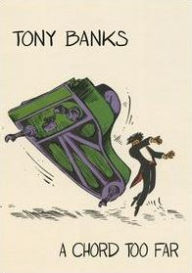 Mike Mettler: It’s interesting what you said about that title of A Chord Too Far in the liner notes, because that’s your penchant as a composer. You like to add those extra chords in there. It’s something you’ve always done.
Mike Mettler: It’s interesting what you said about that title of A Chord Too Far in the liner notes, because that’s your penchant as a composer. You like to add those extra chords in there. It’s something you’ve always done.
Tony Banks: Well, I think it comes about from having more chords than people want to hear, I suppose — I brought it upon myself. It’s kind of what I do, you know? (chuckles)
Mettler: Does that come from your early days of composition, such as putting a certain amount of diminished chords in a row? What’s your thought process as a composer?
Banks: It’s just what felt natural to me. I never did it for its own sake. When I first started writing, I’d hear stuff on the radio and I’d play it by ear. Then you’d always try to do your own thing that other people hadn’t done, or you responded to things that you thought were interesting that other people had done. And then you start to develop from there.
Mettler: I’ve always liked your sense of adventurousness as a composer, and I think that carried over with what you did on your first solo album, A Curious Feeling (1979). That one’s a particular favorite of mine, especially the surround-sound mix you and Nick Davis did of it on DVD [in the two-disc 2009 deluxe edition].
Banks: Oh, right, great. We were pleased with that. We felt the surround sound remixes did make it sound a lot better, so it was fun to do that.
Mettler: Was there any thought of doing surround for this box set, or would that have been too huge an undertaking?
Banks: Well, we’re talking about it. The record company that’s putting this out, Esoteric, they want to have all the albums done that way, so the plan is to do that. It just would have been too cumbersome for this box set.
We remixed quite a few tracks for the box set, and we did some of them in 5.1 as well, for possible future projects. We’ve done most of the next two albums — The Fugitive (1983) and Bankstatement (1989) — and they’re pretty much ready. The idea is to put them out in total with the 5.1 mixes, yeah.
Mettler: That’s great news. You must like hearing music in 5.1 yourself.
Banks: I think it’s fantastic. When we did the Genesis stuff in 5.1, I always thought my favorite moments were in the first half of “The Cinema Show” [from 1973’s Selling England by the Pound], where you have all of these guitars that you could just place all around you — just a wonderful sound effect. And you could have a lot of fun with the 5.1, which we did with the surround sound on The Lamb Lies Down on Broadway (1974).
There’s just something about the way you can space everything out and actually hear everything, all sorts of little bits and pieces that you’re able to find — and find room for them there in a way as well. Whereas in the old days, you had to live with it if something got stuck behind something else in a mix. You never really heard it, and now if you wanted to hear, say, a guitar part or something, you could finally hear it. So I think that’s worked out really well.
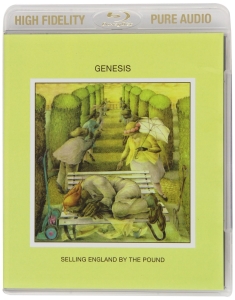 Mettler: And speaking of “The Cinema Show,” Selling England by the Pound is available in surround on High Fidelity Pure Audio Blu-ray, which is quite the listening experience. It was so compressed in the vinyl days, and this is one mix that seems to have been opened up a lot more in its higher-res form.
Mettler: And speaking of “The Cinema Show,” Selling England by the Pound is available in surround on High Fidelity Pure Audio Blu-ray, which is quite the listening experience. It was so compressed in the vinyl days, and this is one mix that seems to have been opened up a lot more in its higher-res form.
Banks: Well, you can do so much more with it now. When we used to do LPs, they were always over-length anyhow, so that meant everything had to be very compressed. Hopefully, that was improved when it came out on CD. But when we went back to do the remixes a few years ago, I feel the stereos are much better. When we got to the 5.1, we had the ability to position everything in a way where I think Genesis music does benefit from. There are other things going on that seem to work well with that kind of music.
Mettler: In the early part of the Genesis catalog, the 5.1 remix of a song like “Supper’s Ready” [from 1972’s Foxtrot] really brings out what you could do as a band, and it really captures the overall compositional excellence of the track.
Banks: Well, I think so. We spent a lot of time on it, really. And it’s a longish song, so it shows what you can do. It’s such a wonderful way to experience it, as you can immerse yourself in it much more in 5.1 than you can with the stereo.
Mettler: Did you and Nick do the solo box set remixes in 96/24, in hi-res audio form?
Banks: We were making the sound quality as good as possible, yes, because obviously the quality of Blu-ray is very high, and this is something you want to keep in the higher quality, you know? In the end, everyone will have everything existing in a digital form anyhow. (chuckles) At that point, your playback system will be the same as your cinema system, and everything will be in 5.1, actually, or some sort of quad-sound equivalent.
Mettler: That just might be where everything is going. When you went through the material, did you and Nick have a conversation about things like level-balancing when you were working with songs recorded with different gear from different eras?
Banks: We changed the mixes if we felt we had to, or to what we thought they should be. To some extent, as with the Genesis stuff and my own stuff as well, you don’t want to radically change it, unless there was something wrong with the original. You just want to make it sounds better, but like it did originally. That’s the aim, I think.
Sometimes you find an instrument or something that you’ll bring out a little more strongly. It’s the subtle things. When we did the original mixes on all these records, you did it how you wanted it, and that was how you wrote it and how you put it all together. You’re not trying to change it too radically.
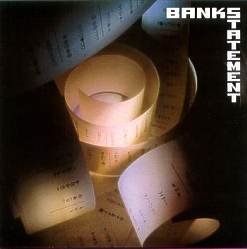 But it’s amazing how much a difference you can make. On this box set, some tracks have advanced an awful long way. “The Border” and “Big Man,” which were both off Bankstatement, sound a helluva lot better now. It’s just the way the instruments combine that seems to be better.
But it’s amazing how much a difference you can make. On this box set, some tracks have advanced an awful long way. “The Border” and “Big Man,” which were both off Bankstatement, sound a helluva lot better now. It’s just the way the instruments combine that seems to be better.
Like I said, we have done 5.1 for some of these songs, and some of those do sound really good, I have to say. I’m looking forward to being able to put those out. There’s a song on The Fugitive called “By You” that has a cranky keyboard sweep throughout it, and in the middle, it gets more complicated, so you get to where these sounds are sort of playing against each other in the stereo. The positions in the stereo are different in the 5.1. It sounds fantastic, I think; you get these effects. I feel this sort of music lends itself to that sort of treatment.
Mettler: Having that entire catalog from Genesis done in 5.1 was, and is, a benchmark for those of us in the audiophile community. The beginning of “Watcher of the Skies” is something I use as a demo for people who have never really heard what surround sound can do.
Banks: All right, thank you! That’s great! I’ll be expecting your royalty check any day now. (laughs)
Mettler: Ahh! You mean you haven’t gotten my wire transfer?
Banks: No, it hasn’t come through. (both laugh)
Mettler: And the character of “Firth of Fifth” [on Selling England by the Pound] — we actually feel the sense of being in that space when you start that pure piano intro.
Banks: Well, it makes everything sound more natural where you wanted it to. At other times, like on The Lamb Lies Down on Broadway, we did play around a little bit more, putting voices out in the back and stuff — which are the sort of things that are fun to do, because you can effect more of a disturbing sort of feeling when you’ve got lots of different characters in a song. You just put them in different places and you doctor it to come out of your back ear. It’s quite nice, because it evokes different things. You have a bit of fun, but hopefully keep it musically effective as well.
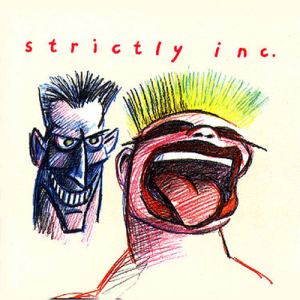 Mettler: It’s not a gimmick if you get the sense of being in the middle of the recording or in the studio with the musicians. We feel we’re in the middle of a composition. One track I’m looking forward to hearing in surround is “An Island in the Darkness” [from 1995’s Strictly Inc.].
Mettler: It’s not a gimmick if you get the sense of being in the middle of the recording or in the studio with the musicians. We feel we’re in the middle of a composition. One track I’m looking forward to hearing in surround is “An Island in the Darkness” [from 1995’s Strictly Inc.].
Banks: We haven’t done that one yet, but it obviously has a lot of potential because there’s so much going on there. I think it’s a song that recalls more of the early Genesis era. That was on a sort of album that didn’t really make any impression anywhere. (laughs) That song is pretty much unknown to everybody, so hopefully they’ll come across it in the box set, and perhaps inspire them to check things out a bit further. And that’s the sort of song that will sound tremendous in surround.
Mettler: I’ll wire-transfer more money your way, because that one has to be done in 5.1. (Banks laughs) Even something like “Thirty Three’s” [from The Fugitive] will be great in surround, because we’ll get the full character of your playing there even better in the high-res form, not in MP3.
Banks: Oh yeah, yeah! MP3s are not the best, as we know. That is one of the instrumental pieces we’ve done in 5.1 that exists now, and sounds really good. The other instrumental that sounds really good in 5.1 is “Redwing,” which is off the Soundtracks (1986) album. It’s one that comes at you from all over the place, and it’s really effective. But like I said, we just couldn’t do 5.1 for this box set, because it would have gotten too cumbersome.
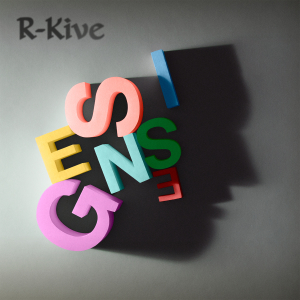 Mettler: Well, one step at a time. I also can’t wait to hear the 5.1 for the orchestral work you’ve done on “Siren” [from 2012’s Six Pieces for Orchestra], which has that wonderful saxophone part. I also like how “Siren”was the closing song on the Genesis R-KIVE collection (2014), which I feel is the perfect endpiece there.
Mettler: Well, one step at a time. I also can’t wait to hear the 5.1 for the orchestral work you’ve done on “Siren” [from 2012’s Six Pieces for Orchestra], which has that wonderful saxophone part. I also like how “Siren”was the closing song on the Genesis R-KIVE collection (2014), which I feel is the perfect endpiece there.
Banks: Of course, the R-KIVE was done pretty much chronologically, so it worked out to be the last piece. I think it was appropriate because it also would have been strange to go from an orchestral piece back to a rock piece. There are some other pieces like Peter [Gabriel’s] “Signal to Noise” [from 2002’s Up] that features orchestral bits, but you can hear the changeover at the end of R-KIVE more towards that kind of sound. I was quite pleased how it all turned out.
The fourth CD in my box set is all instrumental, and it features four songs from the classical albums — and the demos as well, which I put those on to keep people happy.
Mettler: Hearing your compositional process is interesting. You’re also a 12-sting player, which I don’t think a lot of people may know or remember.
Banks: Well, I’ve played it, I wouldn’t call myself a 12-string player. (laughs) I mean, I enjoy playing it and I’ve played guitar all the way through. I have no problem picking the 12-string, but I have a little more trouble trying to play lead guitar, and even bass guitar.
I don’t do it much anymore, but I used to love just picking up a guitar and strumming along. Simple things sound very good on guitar. You can just play E followed by A — and that sounds great on guitar, but it doesn’t sound quite as good on the piano. You can write more simply on a guitar, which I think is quite good sometimes. Keyboard players will use all ten fingers — well, I do, anyhow — and tend to write these big chords, but stretching yourself to write triads is quite good too.
Mettler: Some people say they write different on the piano than they do on guitar just because of the way the finger positionings change.
Banks: Well, that’s right, and like I say, I’m only a part-time guitarist. I don’t really want to play a B-flat major on guitar. I’m trying to avoid it. It’s not something that’s comfortable. You tend to stick to Gs and Ds and As because they’re nice, and they always sound good, you know?
The thing I used to like to do on the guitar was to use the top two or three strings, like I did on the opening pass of “Supper’s Ready.” That way, you’re not really using the guitar properly, but I don’t really know what I’m playing half the time anyway. It’s not like a keyboard where I knew by ear what I was playing. And you tune it differently than you do a piano, just because of the way the strings are.
Mettler: What’s your favorite thing you’ve played on guitar?
Banks: Umm, I really only strummed along with the chords. I was happy with what I wrote on guitar for the beginning of “Supper’s Ready” because it had a certain quality about it.
Sometimes with the others, when we were writing in the early days, in order for me not to play keyboards, sometimes I wanted to keep them off the beach as long as I could. I’d just put on a guitar and play whatever the chords were, and play along. We were quite fond of, as I mentioned, “The Cinema Show” and the early days of “Supper,” where we used to play different chords at the same time to create a kind of effect when you’re picking along — quite a nice thing. When [guitarist] Ant Phillips was in the group, along with Mike [Rutherford], we used to do a lot of that. It was really a magical feature, I think, and we carried that on through later periods.
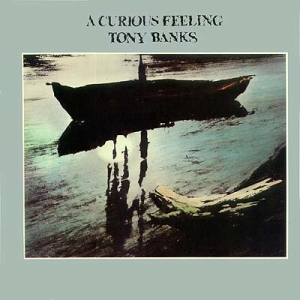 Mettler: On A Curious Feeling, you were playing a Les Paul, right?
Mettler: On A Curious Feeling, you were playing a Les Paul, right?
Banks: Did I? I don’t really remember. I was playing an acoustic — an old Epiphone in those days was my main 12-string guitar. I only played lead on one or maybe two tracks. “The Waters of Lethe” — I was so frightened when I played it, I just let the other strings keep buzzing and resonating. It wasn’t as easy as I thought it would be. But I love the sound of that guitar on that one, so at least I was able to do that.
I had a similar problem with the bass, with the strings resonating underneath. I never knew how the other guys could do it, really!
Mettler: There are two videoclips on the DVD in the deluxe 2009 edition, and the one for “The Waters of Lethe” juxtaposes some of your Les Paul playing over other images that blend together.
Banks: Ah, it could have been. I did play the Les Paul on “For a While.”
Mettler: “The Waters of Lethe” is one of my favorite compositions on there. I like its themes and its message, which ties into the River Styx.
Banks: That’s right. “The Waters of Lethe” is about forgetfulness, and obviously the thesis of losing your memory. Some people’s attitude is there’s too much classical allusion there, but it’s a nice little phrase, and it is used as sort of a term for forgetfulness. It’s quite a nice little thing, I think.
Mettler: I’m glad it appears on this box set. You mentioned how the R-KIVE project went chronologically, but for this box set, you decided to go more thematically. How did you go about making those sequencing decisions?
Banks: Two things I was trying to create. One, I was trying to put them in an order where the songs sounded good and I didn’t have to worry about too much production difference where any of the tracks would work all right one after the other.
And two, I wanted to highlight tracks that weren’t highlighted on the original CDs — not just the ones released as singles, because obviously none of them were hits. (chuckles) They’ll be there, but I put them further along on the album.
I started with a few tracks that I really like, and also just kicking off the whole thing with “Rebirth,” that little thematic piece that was used in the [Kevin Bacon] film Quicksilver (1986). I wanted to use that as the main theme, but they decided they wanted to use other songs in the film, so it hardly got used. The sound explodes more and more and it gets massive, and I always like that. I think it’s a nice tune and sets the whole thing up, and it tells you I’m not trying to make a hit singles album here. (chuckles) I suppose you could say it’s a Genesis-like introduction at the start, like a “Dancing With the Moonlit Knight” [for Selling England by the Pound] or “Watcher of the Skies” [for Foxtrot]. It sounds like a masterpiece, and then you can open the whole thing.
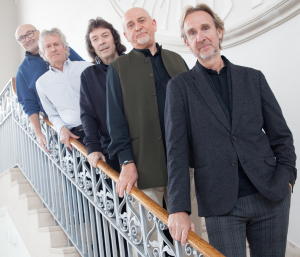
The Staircase Show: Genesis, all together in 2014, from top to bottom: Phil Collins, Tony Banks, Steve Hackett, Peter Gabriel, Mike Rutherford.
Mettler: When you say the phrase “Genesis-like introduction,” that makes me think “Tony Banks introduction,” since that’s how many classic Genesis songs begin, right from your hands.
Banks: I always like to have the first word and the last word on albums. (both laugh) I mean, even on an album like …And Then There Were Three… (1978), it opens with “Down and Out.” There is something about beginning with an instrumental sort of thing. The one time we actually went against that was Selling England by the Pound, where you actually hear the voice, and that’s actually fantastic as well. You make an impact with those first few bars. It sets you up for the next 5 minutes, so you ought to try and get it right.
Mettler: The introductions to songs like “Watcher of the Skies” and “Firth of Fifth” might go on longer than some other people might do with their own material, but I look at it as there should be no time restriction on what you’re doing. Just let the feel take over.
Banks: Back in the early ’70s when we wrote that stuff, there was quite a small market for it. There were people who wanted to hear someone not do the straightforward thing. I mean, we all love straightforward music, and I still do — like The Kinks and The Beach Boys; I love them.
We were trying to do something different for our own satisfaction, something that hadn’t really been done before — new pieces that were 7 or 8 minutes long, or even 26 minutes. It was a great freedom, really. We were allowed to do what we liked. It was great fun.
Mettler: When people ask, “What does Genesis sound like?” I always say, “They sound like Genesis.” You can’t define it any other way.
Banks: (laughs) That’s true! We don’t particularly sound like anyone else, and to be honest, there’s quite a variety of sounds on the Genesis albums.
Mettler: You mentioned The Kinks and The Beach Boys. What was the first record you got as a kid that had an impact on you?
Banks: Well, the first single I ever bought was when I was 11 years old. And that was “The Wanderer,” by Dion (1961), which was sort of an earlier 12-bar. Fantastic sound. It still sounds really good, that vocal. The idea, to an 11-year-old boy, to have that lyric was obviously kind of exciting. It was the first time I heard that kind of thing, with a really strong, powerful vocal and everything.
And I think probably after that, I suppose it was The Beatles who had a massive effect on me. The fact that you could buy a whole album — I bought With the Beatles (1963), and I thought the whole record was good; it wasn’t just one track. The LPs you’d buy then, there was just one or two good tracks, but this wasn’t the case with them. It was inspirational. They wrote their own material, and the writers were part of the group, and that was something that was appealing to all of us who were a bit more introverted who perhaps didn’t want to be out there doing that “thing” too much. (chuckles)
Mettler: Did you prefer the mono or the stereo versions?
Banks: I think with those very early ones, the monos are probably better, because that’s how they are. Once you get into the real stereos later on, they’re fine. The mono mixes are probably better, but I enjoy the stereo mixes as well because you can hear bits and pieces of things you didn’t hear, and you could probably switch the vocals right off and just listen to the backing track. (chuckles) I was introduced to it all as mono and I kind of like mono, but it’s not so good in headphones. In headphones, you need the stereo.
Mettler: There are companies who are offering multichannel headphones now.
Banks: Even in standard headphones, you’d listen to something and swear something was coming out of the back of your head. Something created that effect, so it’s possible to do. That obviously would solve a lot of problems. Maybe it’s as simple as having two speakers in each ear. There may be some way you could do it.
I do like The Beatles LOVE project, that’s really good. I quite like “I Want to Hold Your Hand” — the ones they didn’t fiddle with too much, they just made them sound really good. Those are great.
Mettler: I think Giles Martin did a wonderful job with the LOVE mixes, both stereo and surround. Being enveloped by The Beatles, if it’s done right, is not a bad thing.
Banks: Absolutely not! It’s great. Even “Octopus’ Garden” sounds great in that format, which has probably been put down as the worst-ever Beatles song, but when you hear it with just the strings on it, it sounds really nice.
Mettler: It’s interesting of late to see Steve Hackett going out there with Genesis Revisited and have younger generations discover your earlier work. You, as an artist, have a complete career to be investigated, and there are things to be found that you just don’t hear anywhere these days.
Banks: That’s right. And hats off to Steve, because he was part of the original band; he can do all that and get the audience as well. It’s great he can do that and keep it all fresh and out there, which is really nice. It’s a good thing.
Mettler: The band Yes was a contemporary of yours. Any thoughts on the passing of Chris Squire [founding Yes bassist who died on June 27, 2015]?
Banks: I did meet him, when he was with Steve Hackett for the Squackett project. I met him at that one event, but I didn’t really know him at all. But obviously, he was a very fundamental part of that original Yes sound; very important. We were a bit of rivals, I suppose, as they were out there a year before us — and with King Crimson as well, and Emerson, Lake & Palmer a bit after. So there was a bit of a friendly rivalry, I suppose.
But I particularly liked The Yes Album (1971) and songs like “Yours Is No Disgrace,” and “Roundabout” [from 1972’s Fragile], and other stuff. Those particularly stand out for me, and the earlier ones when Tony Kaye was the keyboard player. I enjoyed the band the most at that stage. But, you know, it’s all good stuff.
Mettler: What a great era for adventurous music.
Banks: For certain people, that whole era, the early ’70s, they either loved it or hated it. In England, for most of the journalists, the best year for them was when the Sex Pistols came out and destroyed that era. But for the other, quieter people (chuckles), the classic era was the prog rock era. It was a great time. You had no rules, and you could do what you liked. There are a lot of bands out there who were playing some pretty strange stuff, and playing it pretty well. It was fun.
Mettler: You’re right about the journalists, on both sides of the Pond. Bands like Genesis, Rush, and Yes got put in this certain category and we the fans said, “No, that’s not correct.” And now a lot of these bands seem to be getting their due.
Banks: A lot of stuff has been re-evaluated to some extent. Everyone likes something, and dislikes something else. In music, it tends to get quite intense: you love this and you hate that. Some of your friends liked The Beatles and some liked The Stones; it used to be like that when I went to school. In the end, you come back to, “It doesn’t matter, because they’re both good, really.” But you did have to pick a side, so you did.
Mettler: To bring it back to your solo career and this box, I think “re-evaluate” is a good word for it, because people will be able to see your own work as the marquee work here, to both discover and rediscover.
Banks: It’s four CDs, and that’s a commitment. And not that many people are going to make that commitment. But some will, particularly those people who crave the early Genesis period. There are many moments like that, especially, “An Island in the Darkness,” from that period, and I think that would be nice for them to hear.
Tags: A Chord Too Far, A Curious Feeling, An Island in the Darkness, And Then There Were Three, Ant Phillips, Bankstatement, Chris Squire, Daryl Stuermer, Down and Out, Firth of Fifth, Foxtrot, Genesis, Giles Martin, Jack Hues, LOVE, Mike Rutherford, Nik Kershaw, Peter Gabriel, Phil Collins, Quicksilver, R-KIVE, Selling England by the Pound, Soundtracks, Steve Hackett, Strictly Inc, Supper's Ready, The Beatles, The Cinema Show, The Fugitive, The Lamb Lies Down on Broadway, The Waters of Lethe, Tony Banks, Tony Kaye, Watcher of the Skies, With The Beatles, Yes
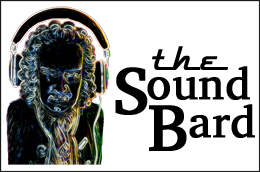
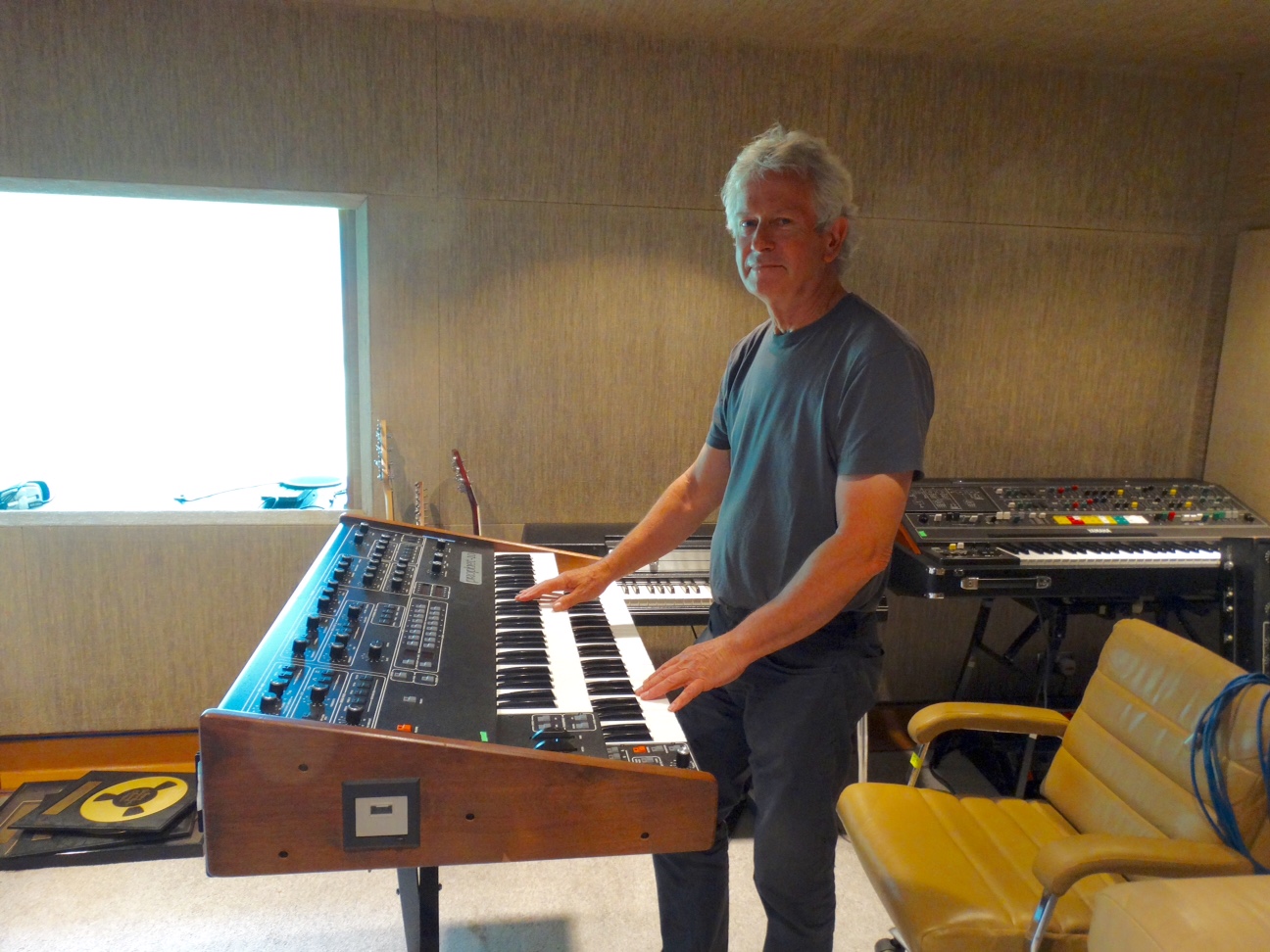
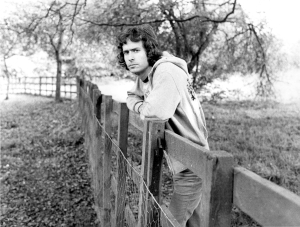
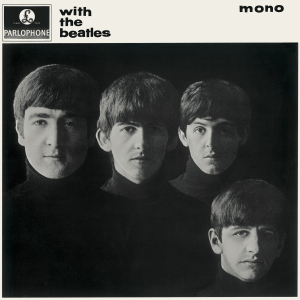

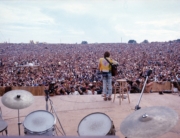

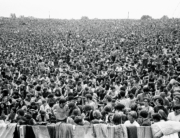
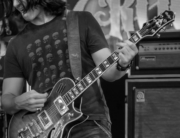
Thanks for the interview. It was a joy reading it. I love Genesis but to tell you the truth I haven’t heard any of Tony’s solo material. If his albums come out with the surround mix (hopefully in a high-res format) I will get at least one or two of them. I don’t buy CDs anymore, so this current box set is not for me. Perhaps I will hunt down a decent copy of his first LP.
Thanks for the kind words, Pal! I hear what you’re saying re CDs. As was briefly mentioned in the interview, Esoteric did a 30th anniversary reissue of A Curious Feeling in 2009 with a second disc, a DVD containing a 5.1 mix by Nick Davis, the man who also did the entire Genesis catalog in 5.1, but it’s currently out of print and hard to find out there for a reasonable price. That said, it sounds like Tony and Esoteric will be putting out his solo releases individually with surround mixes in tow in the hopefully not-so-distant future, so stay tuned!
Mike Mettler
The SoundBard
Great read. I’ve purchased 2 SACD’s from the Genesis 2007 releases but I am curious if and when the catalog will be released on Pure Audio Blu-ray? I know of only the one release but are the others in the pipe line? Thanks
Hey Richard,
Glad you enjoyed the story! I have not seen an official word about when, or even if, any of the rest of the Genesis catalog will be released on the Pure Audio Blu-ray format. (There really doesn’t seem to be a particular logic as to what is being released that way.) If you can’t wait, you could seek out the various Genesis “cube” box sets or the individual album reissues on either SACD or DVD-V. The individual albums are available in a single SACD (albeit double for Lamb) or double-disc CD+DVD-V configuration (DVD-V being the distinction here since each of those discs include video and interview documentary content along with the surround mixes). Of course, some of them may cost a bit more than others, depending on where you look.
Mike Mettler
The SoundBard